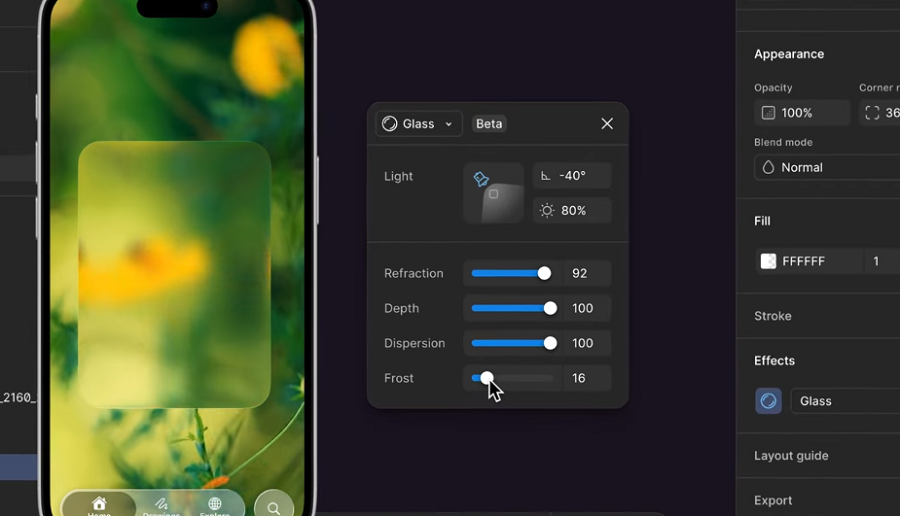Generative artificial intelligence is oh-so-2024. Now that we’re most of the way through 2025, all the AI buzz is around agentic AI.
AI agents – large language model-powered autonomous software programs that can iteratively learn from multiple data sources to achieve the goals set out for them – are now attracting all the attention.
The obvious question: How much of this noise is hype? Are there agentic platforms that actually work, leveraging the transformative nature of AI agents to solve business problems in fundamentally new ways?
To answer this question, I interviewed several vendors that have risen to the top of the froth, developing early reputations as leaders in the agentic AI space. (Disclosures below.)
Here’s what I learned:
Agents for customer support
Given generative AI’s success powering chatbots with human language interfaces, agentic platforms that power customer support are an obvious place to start.
Sendbird Inc. provides an agentic AI platform that focuses entirely on customer support. It works across multiple communications channels, including Instagram and Facebook Messenger.
Sendbird can initiate autonomous support and sales conversations while keeping humans in the loop for more complex inquiries. It then proactively re-engages with end customers, enabling Sendbird’s customers to offer automated ‘personal concierge’ services, even to mass market customers.
It offers its own unit testing framework as well as security, privacy and compliance capabilities that provide the guardrails necessary for customer interactions with AI-based services.
The agentic AI platform from MavenAGI Inc. also focuses on improving the customer experience. It can resolve support tickets, answering customer enquiries more than 90% of the time.
MavenAGI has extensive multimodal support, working across copilots, chatbots, web search, voice, email, WhatsApp, SMS, Slack and Teams – as well as via application programming interfaces. MavenAGI’s agents are smart enough to resolve most customer problems across different industries, for example, deliveries of the wrong item, fraud alerts or canceled flights.
The company’s speech intelligence is an important differentiator, as MavenAGI offers both speech-to-text and the more challenging voice-to-voice capability. These voice capabilities support its extensive telephony and call center integration.
Agents that address departmental challenges
Customer support is but one of many areas where agentic AI has established a foothold. Perhaps the most interesting conclusion from my research is how AI agents can address challenges across multiple departments in the enterprise.
Auditoria.ai Inc provides an agentic AI platform for finance operations, or FinOps. As a result, the company targets chief financial officers – notoriously skeptical purchasers of software.
The intelligent nature of Auditoria agents, however, has converted many reluctant CFOs. The agents take over many of the mundane FinOps tasks such as managing communications, digitizing documents and handling status notifications.
What convinces most CFOs, however, is Auditoria’s AI-driven automation, which can handle invoice, collection, remittance and help desk processes, freeing personnel to focus on more strategic tasks.
7AI Inc. offers an agentic AI platform for cybersecurity analysts. The company’s agents leverage alerts and other incoming data from multiple sources to perform security investigations, make conclusions and offload repetitive tasks.
The company offers what it calls ‘swarming agents.’ Based on technology that offers a dynamic approach to generating agents on the fly, the platform may provide hundreds or thousands of agents for any particular customer.
7AI agents may behave either deterministically or nondeterministically. For example, they handle triage of alerts deterministically but takes a nondeterministic approach to creating mitigations based on researching various data sources, including tribal knowledge that human personnel have documented previously.
Rox Data Corp. focuses its agentic AI platform on revenue operations – specifically sales productivity. Rox is looking to reinvent the customer relationship management market (as well as integrate with Salesforce and other CRM apps) with its ‘agent swarm’ approach.
Underlying Rox’s agent swarms are a data lake-based system of record that supports a knowledge graph that connects data from multiple sources. Rox’s agents handle numerous tasks for go-to-market personnel, including research, tracking, and an understanding of org charts and opportunities.
Finally, Resolve AI Inc. focuses its agentic AI platform on information technology operations, essentially providing an agentic AI-based system reliability engineer or SRE.
The platform handles all alerts, performs root cause analysis of issues, and then troubleshoots incidents, acting as an on-call resource for human operators. Resolve leverages a knowledge graph that maintains information about all infrastructure dependencies in real-time. This knowledge graph understands the full enterprise production environment.
Agents continually listen to alert streams and gather evidence from multiple sources to generate hypotheses about the root causes of issues. It then iteratively tests all such hypotheses to uncover the most likely causes.
Though Resolve primarily focuses on the production environment, developers can also use its agents to troubleshoot incidents during development.
Agents for everyone
While some agentic platforms focus on the needs of particular departments, there are also some offerings that seek to address the needs of employees across the organization.
NinjaTech AI Inc. offers SuperNinja, a general-purpose AI agent that acts as a knowledge worker, vibe coder, analyst and researcher, among other roles.
SuperNinja installs a Linux VM which hosts the agents, either in sandbox mode or for cloud-based deployment. Customers can then port the VM to their environment of choice. Its breath of capability is its most remarkable characteristic. It can build web sites, generate PowerPoint slides, analyze spreadsheets, automate processes, and more – all within a single agent.
In addition to SuperNinja, NinjaTech also offers several simple agents that can handle individual tasks. In fact, NinjaTech’s agents fall into three categories — simple, complex and autonomous — thus matching the level of complexity for each task.
Glean Technologies Inc. provides an agentic AI platform that empowers any employee to build and run their own agents.
Glean began its journey to agentic AI by offering AI-based search. It soon added LLM-based AI assistants, aka chatbots. Now the company offers a full-fledged agentic AI platform that leverages Glean’s deep expertise with both search and AI assistants.
Glean offers a no-code interface that anybody can use to build agents. In addition, the company provides low-code capabilities for developers to build agents rapidly, as well as “pro-code” capabilities via APIs and an SDK when low-code falls short.
Under the covers, Glean’s most important differentiation is how its knowledge graph keeps track of granular permissions for every data element it tracks. This thorough permissions infrastructure enables employees to build a wide variety of powerful agents that nevertheless conform to privacy, security and compliance policies.
The sorts of agents that employees might build, however, are likely to be lightweight, point solutions that provide little value across the organization.
In contrast, Moveworks Inc. provides an agentic AI platform that delivers agentic AI assistants for the entire enterprise workforce, including IT, HR, finance, engineering, sales, marketing and everyone else.
Moveworks agents can automate even the most complex, enterprise-wide business processes.
In addition to the aggregation and action-based agents that all platforms offer, Moveworks also offers “ambient” proactive agents that run continuously, monitoring for information relevant to their goals.
Its most important differentiator, however, is its reasoning engine which manages all the agents, iteratively learning, experimenting and building agentic workflows. Moveworks’ capabilities are so impressive, in fact, that ServiceNow Inc. announced earlier this year that it’s acquiring the company.
Agentic developer platforms
While developers can use many of the platforms above to create and deploy AI agents, a few standout vendors focus entirely on developer requirements.
AgentOps.ai from Staf Inc. aka Agency offers a developer platform for building, debugging and deploying AI agents and other LLM-based applications. The platform also provides developers with observability into agent behavior. AgentOps enables developers to restart agents from the point of failure, thus accelerating the debug/fix process.
Rounding out this category is Mastra from Kepler Software Inc., which offers a TypeScript agent framework that leverages its open-source Gatsby JavaScript stack.
Mastra offers everything developers expect from an agent development framework, including a unified provider API, RAG support, flexible memory, prompt tuning and tool calling – all with TypeScript, a popular, strongly typed extension of JavaScript.
The pivots that are now ‘all in’ on agentic AI
I also uncovered some notable examples of vendors I have spoken with several times over the years, and which have now pivoted to agentic AI.
Akka from Lightbend Inc. extends the mature Akka serverless, message-driven reactive runtime to the agentic AI world. Today, Akka is a platform for building, running and evaluating agentic systems, including orchestration, memory and streaming capabilities. Akka agents provide developers with both a design model and runtime for agentic systems, helping them define how agents gather context, reason and act.
SnapLogic Inc. leverages its long history as a low-code enterprise integration platform to offer an agentic integration platform for developers to integrate AI, data, apps and services. It now offers its AgentCreator low-code tool for creating and deploying AI agents. AgentCreator supports multiple LLMs and provides agent evaluation, observability and data security capabilities.
This category wouldn’t be complete without mentioning UiPath Inc., which has a well-deserved reputation as a leader in the robotic process automation market. Its bots handle legacy integration and automation for numerous enterprises, despite bots’ primary shortcomings of brittleness and adding to technical debt. (See my 2021 coverage of UiPath’s RPA offering.)
As a result, the company has pivoted to agentic AI, leveraging LLMs to support the autonomous behavior essential to flexible automations. UiPath’s most important differentiator, however, remains its RPA bots, which it now orchestrates into agentic workflows when access to legacy applications and data sources is important for building agentic workflows.
The Intellyx take
What the 14 vendors in this article have in common is that they all have fully functional agentic offerings – with no handwaving or “agent-washing.”
Furthermore, this list only scratches the surface. My research turned up several other vendors I might have just as easily included. The conclusion, therefore, is that agentic AI is real and here to stay.
True, it’s still an emerging technology and there’s plenty of hype to go around. But as these vendors show, agentic platforms and the agents they support are solving business problems today – and furthermore, are transforming the way software addresses complex business needs.
Jason Bloomberg is founder and managing director of Intellyx, which advises business leaders and technology vendors on their digital transformation strategies. He wrote this article for News. (* Disclosures: Akka is an Intellyx customer and Moveworks, ServiceNow and SnapLogic are former Intellyx customers.)
Image: News/Microsoft Designer
Support our mission to keep content open and free by engaging with theCUBE community. Join theCUBE’s Alumni Trust Network, where technology leaders connect, share intelligence and create opportunities.
- 15M+ viewers of theCUBE videos, powering conversations across AI, cloud, cybersecurity and more
- 11.4k+ theCUBE alumni — Connect with more than 11,400 tech and business leaders shaping the future through a unique trusted-based network.
About News Media
Founded by tech visionaries John Furrier and Dave Vellante, News Media has built a dynamic ecosystem of industry-leading digital media brands that reach 15+ million elite tech professionals. Our new proprietary theCUBE AI Video Cloud is breaking ground in audience interaction, leveraging theCUBEai.com neural network to help technology companies make data-driven decisions and stay at the forefront of industry conversations.










